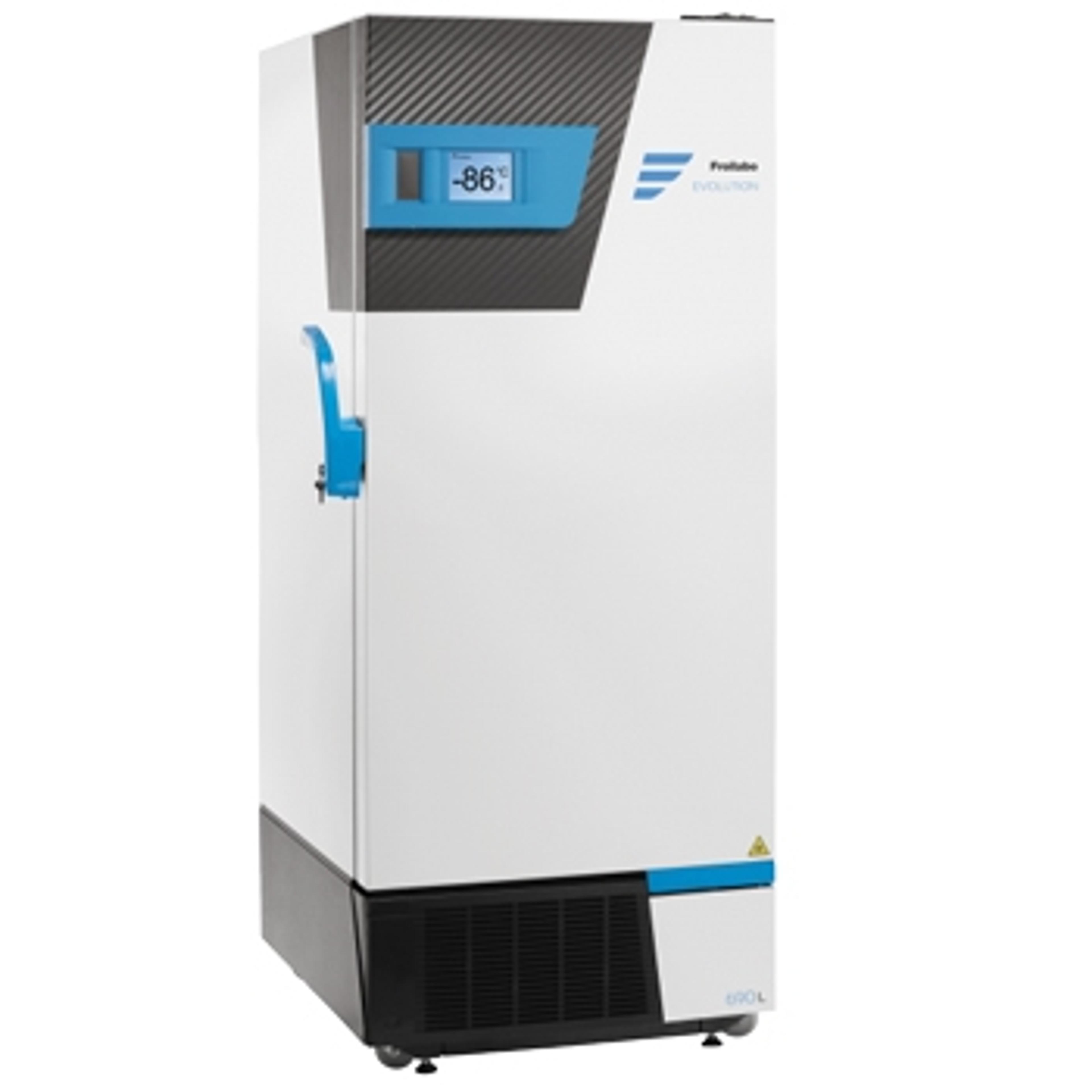The power of biopharmaceuticals as a therapeutic for cancer
Discover the lab equipment enabling a new era of cancer research
4 Oct 2023
Biopharmaceuticals, otherwise known as biologics are gaining momentum as the ideal therapeutic choice for a wide range of diseases, most prominently for autoimmune disorders and cancer. They consist of a therapeutic which has been synthesized from a biological source, which makes it distinct from chemically synthesized pharmaceutical products. Different types of biologics exist and can range from small uncomplex molecules to larger complex biologics such as monoclonal antibodies.
Why are Bio Pharmaceuticals gaining momentum?
This therapeutic option is revolutionizing the world of medicine, due to its selectivity and specificity. The more specific a drug, the more effective it is, and in most cases also minimizes adverse side effects due to the localized targeting of the drug. Furthermore, they are able to provide novel treatment options for diseases that commonly had limited treatment options available, such as cancer and autoimmune disorders. The reason they are so effective against these types of diseases is because they utilize a biological source, allowing for them to be adapted, edited and enhanced to become the optimal therapeutic.
However, there are challenges with biopharmaceuticals, which include high manufacturing costs due to the requirement for specialized equipment and materials, as well as the requirement for a precise environment due to the high sensitivity to pH, oxygen levels, temperature, etc. Hence conditions that can support a biologically active environment is essential for the production of many biopharmaceuticals.
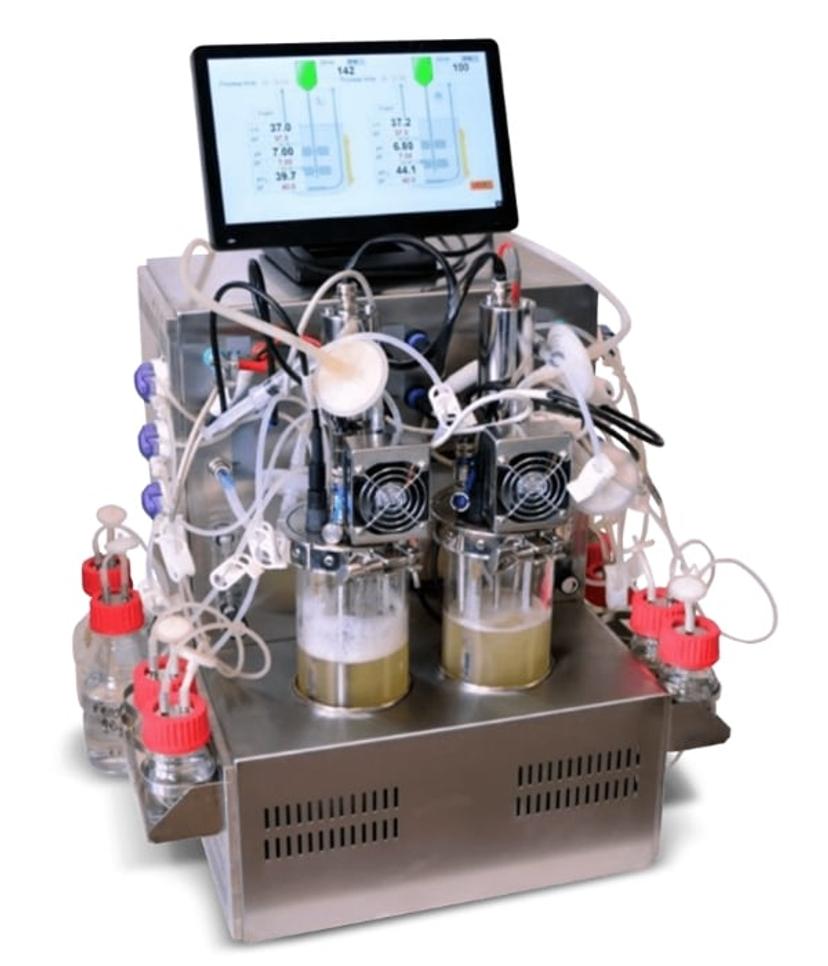
Bioreactors and Biopharmaceuticals:
Bioreactors support a biologically active environment, and their purpose is to supply cells and microorganisms with the ideal environment where they can proliferate. Bioreactors are commonly used in the production of biopharmaceuticals due to their ability to provide this ideal environment where certain characteristics can be manipulated depending on user needs. This includes changing different growth factors such as temperature, pH, and nutrient supply which in turn allows for the production of complex products.
Techcomp lab products by Froilabo offer a wide range of bioreactors, which can be adapted to your laboratory’s needs. Benchtop bioreactors are suitable for cell cultivation, including mammalian and plant cells, offering control of temperature, pH, agitation, foam, and pO2 levels.
CAR T cells and the drive towards alternative cancer therapies:
Chimeric antigen receptor T cells (CAR T cells) are both a biopharmaceutical and an immunotherapy that can kill cancer cells. They are genetically modified T cells that bind to specific antigens present on cancer cells. Once it binds to the antigen, the cell activates, proliferates, and releases cytokines to attract other immune cells to the site of the cancer cells. If all the cancer cells are eliminated, the affected individual will go into remission. This type of treatment is highly effective as the genetically modified CAR T cells are highly specific and are primed to be the optimal cancer killing machine.
One of the types of CAR T cells currently being used to treat blood cancers in young adults and children is anti-CD19 CAR T cell therapy. These cells have the genetically modified CAR on their surface which recognizes the CD19 protein expressed on cells (see figure 1). Once this binding occurs the genetically modified T cell becomes activated, and releases cytokines and chemokines, inducing an inflammatory response. This leads to the destruction of the CD19-expressing cell. Different types of CAR T cells are being developed and used in order to widen the applications of CAR T cells, as they can be engineered to target any antigen, as long as it is not expressed by healthy cells. This means that the target of these modified cells will not result in the destruction of healthy human cells, which would be detrimental to the patient.
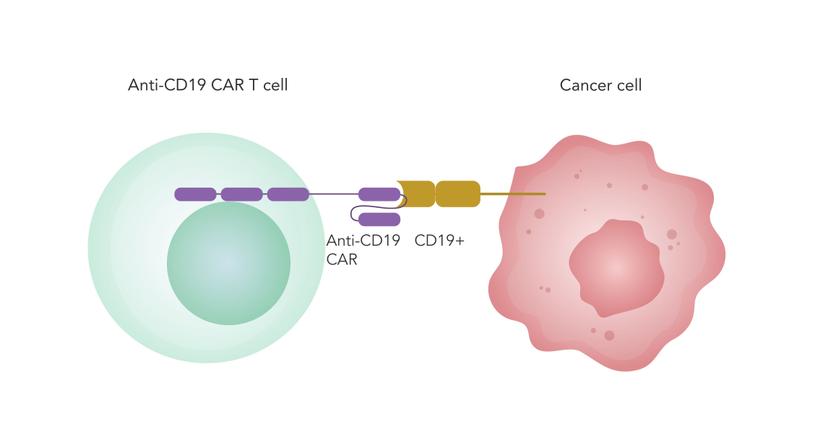
Whilst this treatment method is highly effective, there are also some significant side effects and challenges. This treatment option is often used in an advanced stage as it is costly to manufacture these cells as they are specific to each individual (refer to figure 2 to see how CAR T cells are made). Additionally, as they are used as a last resort, sometimes the cancer patient may not be fit enough to receive this treatment. Many cancer treatments result in the depletion of T cells, and so the patient must be taken off these treatments to allow their T cells to be as healthy as possible before collection. This poses challenges as the individual may be too sick to be taken off their treatment, and so, at the moment, it is patient specific as to whether or not this treatment method is viable. At present these types of T cells are approved for use in blood cancers such as leukemia, but there are currently extensive clinical trials being conducted to test their efficacy for other types of cancers such as solid tumors.
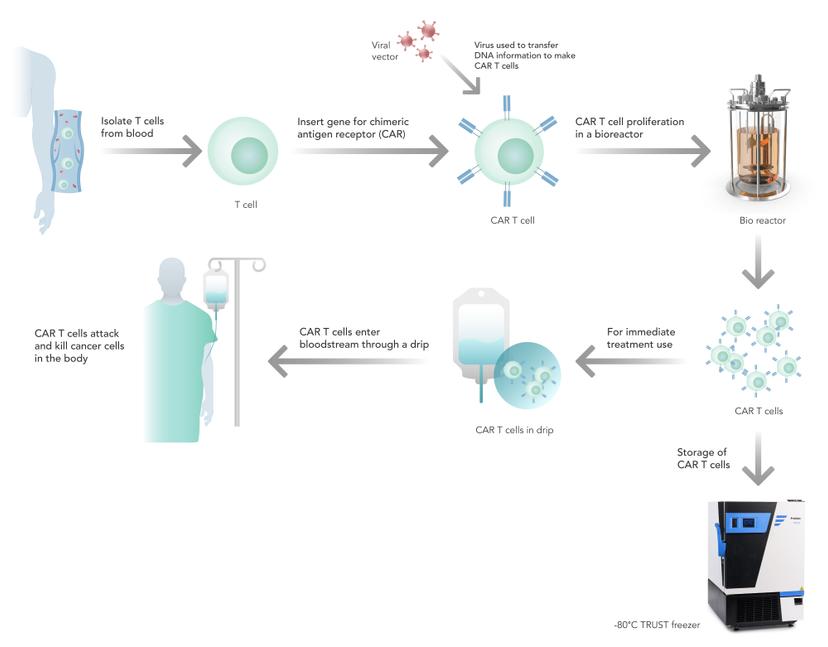
Steering the future of CAR T cells:
CAR T cells aren’t commonly used as one of the first therapeutic options for cancer, but this could change in the future, and quicker than you think. These genetically modified cells are primed for killing cancer cells, but they still have a long journey ahead of them before they are a widely used therapeutic for several different types of cancers. The potential of this therapeutic is limitless, especially with scientists currently working on the next generation of CAR T cell therapies. One of the most promising of these are armored CARs, these T cells would be more complicated, with additional genes or molecules to aid in therapeutic targeting, navigation, and modulation of the tumor microenvironment (TME). The function of these cells would be to overcome immunosuppressive barriers found in solid tumors and to provide these cells with ‘armor’ to withstand the TME.
This is only the start of the journey for CAR T cells, and the road is endless with limitless possibilities that go beyond oncology and into immune and autoimmune diseases.
Lab Products by Froilabo and the Biopharmaceutical industry:
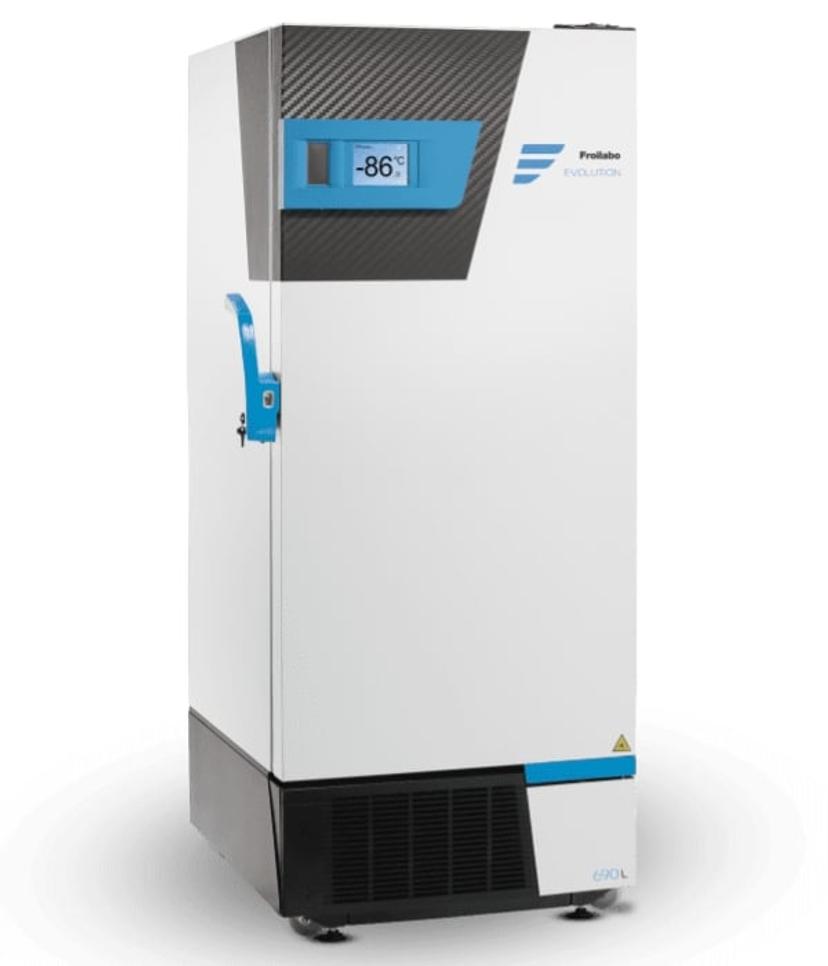
No matter where you want to take your biopharmaceutical research, if it is investigating CAR T cells or any other biopharmaceutical, you need laboratory equipment that you can rely on.
One of the most important but often overlooked pieces of equipment in your laboratory is your freezer. Storage conditions of samples can significantly affect their viability and stability, and in turn affect the accuracy of your results. There are different methods and temperatures for preserving CAR T cells, one of the more affordable but also reliable storage conditions is -80oC. This temperature can be used as a long-term storage solution and prevents metabolic change and cell damage. Ensuring optimal cell storage conditions is essential for scientific success for CAR T cell research, as well as other biopharmaceuticals. Froilabo ULTs offer an optimal and ideal storage solution for your valuable samples and ensures sample integrity.

